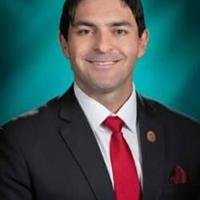Business
Medicaid Cuts Threaten Arizona’s Health Landscape, Leaders Sound Alarm as Ciscomani Slams ‘Outlandish Lies’

In recent discussions surrounding Medicaid cuts, Democratic Senator Mark Kelly and Arizona business leaders are raising serious concerns over the potential economic fallout. They warn that proposed reductions could lead to substantial job losses and decreased economic productivity across the state. Meanwhile, GOP Representative Juan Ciscomani has dismissed these concerns as “outlandish lies,” asserting that misinformation is prompting unnecessary panic.
At a forum held by Senator Kelly last week at Pima Community College, families shared stories illustrating the critical reliance on Medicaid. Among them were Paul and Trisha Petersen, whose 8-year-old son, Owin, has muscular dystrophy and autism. Owin’s ability to communicate via a tablet—a recently acquired skill—highlights the importance of therapeutic services funded through Medicaid.
“He receives a lot of services, from speech therapy to occupational therapy to physical therapy,” Trisha explained. Any potential cuts, she added, could jeopardize Owin’s access to vital health services. This sentiment resonated with many attendees who spoke about their health struggles during the hour-long session.
Senator Kelly pointed out that Republican lawmakers and the Trump administration have plans to cut Medicaid funding by $880 billion over the next decade to finance tax cuts for the wealthy. He criticized the proposed budget as prioritizing the interests of billionaires over those of low-income and disabled individuals. “What they’re trying to do is take a benefit that lower-income and disabled people rely on,” he said.
Conversely, Ciscomani contended that residents of Southern Arizona are being misled about the GOP’s intentions regarding Medicaid. He emphasized that the proposed budget framework does not include specific cuts to the program, yet it requires significant spending reductions. “Medicaid will likely bear the brunt of these reductions,” Kelly cautioned, highlighting the risk to vulnerable populations.
In contrast to Ciscomani’s reassurances, a coalition of Arizona business leaders remains deeply concerned about the ramifications of Medicaid cuts. Organizations, including the Arizona Chamber of Commerce and Tucson Metro Chamber, issued a letter urging lawmakers to protect federal Medicaid funding, citing potential devastation to the healthcare system and economic instability.
Ted Maxwell, president of the Southern Arizona Leadership Council, labeled the potential cuts as “potentially catastrophic,” stressing that the ramifications extend beyond healthcare. “A drastic reduction in AHCCCS funding would create an economic ripple effect,” he noted.
Over 2 million Arizonans benefit from AHCCCS, with eligibility tied to earning less than 138 percent of the federal poverty level. However, if federal participation diminishes, about 750,000 individuals could lose their coverage, as outlined by Kelly. Tucson Medical Center’s Julia Strange cautioned that such losses would exacerbate issues within the healthcare system, leading to overcrowded emergency rooms and prolonged wait times for all patients.
Ciscomani has previously expressed alarm over Medicaid cuts, having co-signed a letter with fellow members of the Congressional Hispanic Caucus highlighting the potential impact on Hispanic communities reliant on these services. While he supports efforts to eliminate waste and fraud within Medicaid, he has refrained from directly addressing whether he would oppose cuts that would reduce federal funding for the program.
At the forum, Kelly encouraged attendees to voice their concerns to Ciscomani, hoping to foster dialogue that could prevent detrimental cuts. He recalled Senator John McCain’s pivotal role in halting the repeal of the Affordable Care Act in 2017, urging constituents to take action through emails, calls, or personal visits.
This ongoing debate over Medicaid reflects broader tensions within state and national politics, as stakeholders grapple with the implications of potential funding cuts on both healthcare and economic stability.


















